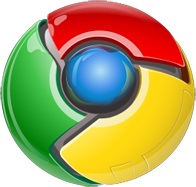By now you’ve probably read on Ars that Google is entering the operating system market, joining the big three: Windows, Mac OS X and Linux.  Google Chrome OS will be a lightweight OS targeted to netbooks. That’s a smart plan on Google’s part–target an area where other operating systems are having difficulty running as fast as they do on a more powerful desktop machine.
Google Chrome OS will be a lightweight OS targeted to netbooks. That’s a smart plan on Google’s part–target an area where other operating systems are having difficulty running as fast as they do on a more powerful desktop machine.
Of course, the other great small device OS is Apple’s Mac OS X, but I don’t think we’ll ever see that on a traditional netbook.
Sundar Pichai, Google’s vice president of Product Management and Linus Upson, Engineering Director described the keys of the operating system being “Speed, simplicity and security.” In fact, he said the OS was being designed to start and have you on the Web in a few seconds.
Seconds. Seriously, think about that. Definitely a great feature for a netbook to have. Imagine, opening up you netbook and being ready to type by the time your hands get to the keyboard.
Google said the Chrome OS will run on x86 processors, as well as ARM chips. Again, targeted to the netbook market.
I’ve seen some comments this morning telling Google, no thanks, we don’t need another operating system. I don’t agree–I say bring it on.
I don’t mean that sarcastically, I really do welcome Google to the market. Having a company like Google on board will definitely fire up the competition a little.
Google has a long history of allowing it’s engineering team to work on special projects. Just look at some of the things we take for granted these days that come from Google.
Google Earth, Gmail, Google Docs, Calendar, Webmaster Tools, Reader, Analystics–I could go on and on. These aren’t things that we look at and think, “oh those are nice, but I’d never use them.”
I use my Gmail, Webmaster and Analytics tools every single day, without fail. Now, I’m not saying that I’ll be dumping the Mac OS anytime soon, but I think Google can help bring some innovation to the market.
They seem to be able to bring innovation into almost everything they do, so I have no reason to think this will be any different.
Google isn’t the first company to market an alternative operating system. Remember BeOS? It started in 1991 and featured pervasive multithreading, preemptive multitasking and a custom 64-bit journaling file system. By all accounts, it was a very good OS, but it failed in the end.
And let’s not forget NeXTSTEP, the operating system developed by Steve Jobs’ company when he left Apple. Again an incredibly advanced operating system, but it didn’t catch on in the market on its own.
It was, however, to become the basis for Mac OS X. Apple bought the company for $429 million, bringing Jobs back to Apple.
I don’t think Google’s plan is any better that NeXT or Be. We live in a different tech world now and the opportunities for a company like Google are more open. NeXT and Be tried to compete on the desktop and the realitively new Internet market.
Google on the other hand has pioneered some of the ways we think about working on the Internet and in the cloud. It’s going to be an interesting time, watching this unfold.
